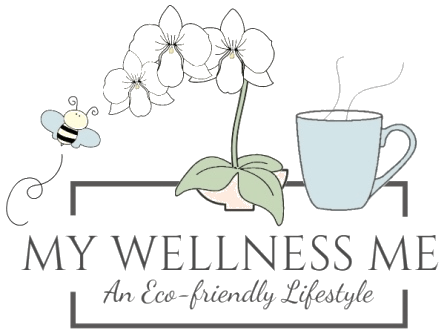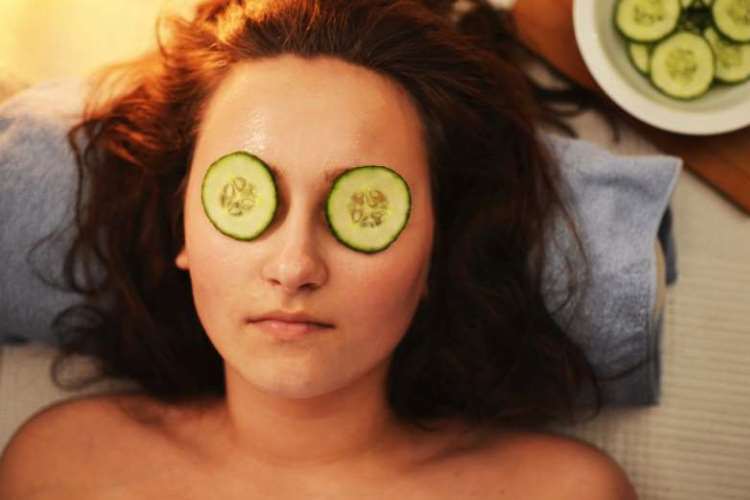What is glowing skin?
It’s when you have this natural glow and your skin effortlessly reflects sunlight. Dewy, that’s the adjective. Fresh is another. Supple. Luminescent. Hydrated. Healthy.
A smooth and healthy blemish-free skin has long been considered a desirable trait, so it comes as no surprise that we are always searching high and low to find ways that would produce this glowing skin. It’s a priceless criterion of beauty sought by men and women, royalty and common folk, of today and bygone eras.
Cleopatra bathed in donkey milk! There’s bathing in wine (shame letting all that good wine go down the drain.) Some coated their skin with poisonous lead (Venetian ceruse) for that exquisite “deathly” look. This is crazy.
The good news is…
Not everyone needs to jump through hoops for great skin.
The market is full of incredible eco-friendly skin care products that are safe and do a great job, but the price tags are not worth the purchase.
The recipes you will see in this article are as effective, more pocket-friendly and the process of making them is hassle-free and quick.
Each one is perfect for beginners and should be a fixture for an eco-friendly beauty routine.
DIY skin care recipes for beginners
We already know a good skin regime broadly involves three steps:
Cleansing — Washing your face off the impurities
Toning — Balancing the skin’s pH
Moisturizing — Hydrating and nourishing
Check out some easy-to-prepare homemade skin care recipes for each of the aforementioned steps.
1. Cleansing
Cleansers should be gentle on the skin, which makes soap-free cleansers the best cleansers for any skin type. Do not cleanse more than once every day.
Gram flour facewash
1/2 cup gram flour
1 tsp turmeric powder
6-7 drops lemon essential oil
5 drops sweet almond oil
2 tbsp oatmeal powder (for very oily skin)
Distilled water
Blend them together to form a smooth paste.
Why this works…
Gram flour: Anti-inflammatory, fights infection, brightens skin, manages excess sebum.
Turmeric: Natural antiseptic, anti-inflammatory, soothes skin conditions like eczema, checks hyperpigmentation, anti-blemish.
Lemon oil: Anti-inflammatory, controls tissue damage, good for cold sores and blisters due to its antimicrobial properties, reduces acne. Lemon essential oil is derived by cold-pressing the peel which is the most nutrient-rich portion of the fruit due to the fat soluble phytonutrients.
Sweet almond oil: Helps skin retain moisture which results in smooth skin, penetrates skin and dislodges the debris in the skin pores.
Oatmeal: Moisturizes skin and absorbs excess sebum production.
If you prefer a foaming type facewash that is as gentle as a non-soap cleanser, try this recipe…
Honey and tea tree oil facewash
1/3 cup Dr. Bronner’s Pure Castille Liquid Soap
1/3 jojoba oil
7-8 drops tea tree essential oil
2 tbsp raw honey
Distilled water
Step 1: Whisk distilled water and castile liquid soap in a blender.
Step 2: Add jojoba oil, tea tree essential oil and raw honey and whisk again.
How to use them: Shake well before use. Gently massage the facewash on your face and neck. Rinse off with water.
Why this works…
Dr. Bronner’s Pure Castile Liquid Soap: Non-toxic, natural, biodegradable, and versatile vegetable-based liquid soap that’s made free of animal fats and synthetic ingredients.
Jojoba oil: Great carrier oil that is fast absorbing and similar to human skin oils, does not go rancid, non-allergenic, non-comedogenic.
Tea tree oil: Anti-infection and anti-inflammatory properties, great for acne and cold sores, excellent in combination with jojoba oil.
Raw honey: Anti-bacterial, antioxidant, anti-inflammatory, wound-healing properties.
Raw honey vs Regular honey
Raw honey is extracted straight from the honeycomb. It is typically poured over a mesh to separate it from impurities like dead bees and bee wax.
Regular honey is raw honey that has been pasteurized, that is, heated in high temperature to kill off yeast so that it is not fermented. Pasteurization also makes the honey smoother and free of granules and easy to bottle for commercial purposes.
However, this process can kill off valuable enzymes and antioxidants that are present in raw honey.
So, raw honey may not look as good as processed honey but it is better for your health.
2. Toning
Toners are excellent additions to the skin care routine. The cleansing process can leave skin a bit alkaline, whereas the ideal healthy skin is slightly acidic. Toners help balance the pH level of the skin.
They are particularly effective on oily skin, blackheads, and clogged pores. Think of toners as the second wave of artillery you send in to get rid of dirt and grime that are beyond the capacity of cleansers.
Best natural toners for glowing skin
Apple Cider Vinegar: Mix 1 part of apple cider vinegar with 2 parts of water.
Green Tea: Brew 1 tsp of green tea leaves in 1 cup of boiling water. Strain the water to remove the leaves.
Rose Water: Boil 2 cups of fresh rose petals in 2 cups of distilled water. Let the petals stay in water for about an hour. Strain the water to remove petals.
Cucumber Juice: Heat 2 cups of chopped cucumber in 2 cups of distilled water in low flame for 5-6 minutes. Transfer it to a mixer and blend for 10-20 seconds. Strain the mixture to get a clear green cucumber juice.
How to use them: Wet a soft cotton ball with chilled toner and dab it on cleansed skin.
NOTE: Chill all the above-mentioned toners in fridge before use.
Why this works…
Being natural astringents, apple cider vinegar, cucumber, green tea, and rose water help to tighten pores and also tone skin.
Toner vs Astringent
Astringents are a stronger version of the toner, with a higher concentration of alcohol. They are formulated to get rid of excess oil.
While astringents do a stellar job, if you have sensitive skin then stay with the toner which is milder and can be used daily. The slightly more alcohol content means that daily use of astringents can result in dry skin.
Besides skin care, astringents are also good for insect bites and minor skin irritations.
3. Moisturizing
Homemade daily use moisturizer
1/2 cup beeswax
1/2 cup shea butter
1/cup cocoa butter (skip if you have very oily skin)
1/8 cup jojoba oil
1 tsp raw honey
1 capsule Vitamin E
5 drops tea tree essential oil
5 drops lemon essential oil
5 drops carrot seed oil
5 drops lavender essential oil
1/2 cup distilled water
Step 1: Heat water in a pan and place another smaller container on the water to make a double boiler. Melt the beeswax in it.
Step 2: Add shea butter and/or cocoa butter to the beeswax and let the combination melt.
Step 3: Turn off the heat. Add raw honey and sweet almond oil.
Step 4: Add the essential oils.
Step 5: Cut open the Vitamin E capsule at the tip and add the oil to the mixture.
Step 6: Add distilled water.
Step 7: Combine them all in a blender until you reach a creamy consistency.
NOTE 1: Ensure water does not get inside the second container. Additionally, start with 1/4 cup distilled water. The more water you add, thinner the consistency of your cream. Use the product daily and the quicker you use it up the better.
NOTE 2: Any formulation containing water becomes a medium for microbes to grow. If you see mold, throw it away. Mold is not your friend here and you’re not growing penicillin. The above measurements are just a guide; you can halve them if you feel you cannot use it up within a week.
Why this works…
Beeswax: Antiviral, anti-inflammatory, and antibacterial properties; helps to seal in moisture in the skin.
Shea butter and cocoa butter: Contains beneficial antioxidants and fatty acids. (Cocoa butter is oilier.)
Jojoba oil: Excellent carrier oil. antioxidant and antibacterial properties, non-comedogenic, regulates sebum production as it is similar to human skin oils.
Honey, Vitamin E, sweet almond oil all work together to soften and smoothen skin and help to delay the skin aging.
Tea tree oil and lemon oil: Soothes itchiness, anti-infection and anti-inflammatory properties, anti-acne, complements jojoba oil.
Carrot seed oil: Powerful antioxidant, inhibits hyperpigmentation, helps repair damaged tissue. The odor is an acquired taste. To me, it smells like grass.
Lavender oil: Anti-inflammatory, antiseptic, and antioxidant properties that help fight free radicals; versatile essential oil for any skin type.
Carrier oils vs Essential oils
Carrier oils are vegetable oils typically extracted from the fatty parts (seeds, kernels or nuts) of a plant. They carry the essential oils onto the skin and so the name.
Essential oils are more concentrated and too potent for direct application; only a few drops are needed at a time.
This makes them popular for aromatherapy but necessary to be diluted with water or carrier oils for other uses. This is why essential oils are sold in such small bottles.
If you dilute essential oil with carrier oils it does not lose its potency and is an excellent way to avoid waste through excessive application.
There are many types of carrier and essential oils. You can replace jojoba oil with grapeseed oil, argan oil or rosehip oil if you have mature skin. You can also use bergamot in place of tea tree oil.
Experiment and see what works best for you. Essential oils come with a versatile range of benefits, so one can’t really go wrong.
Here’s a detailed guide on essential oils.
How to use homemade glowing skin products
Try and use these products consistently to see results; one or twice daily over six weeks is perfect. Our skin responds to consistent and long-term use of cleansers, toners and moisturizer to be fully nourished.
Exfoliate once in two weeks. Check out these easy DIY coffee scrubs.
Yes, it is possible to achieve glowing skin with makeup. But the best looks are achieved when skincare regime does the heavy lifting and creates a canvas where makeup can do its magic!
Let’s also not forget that skin is 60 percent genetics. But to depend wholly on them to carry you looking good through to old age is foolhardy. Skin is affected by causes such as wind, pollution, sunlight and lifestyle, not to mention other factors like stress, bad products, gut health, and lack of exercise. You have to take care of it.
Glowing skin is often the sign of happy people who care about their being and how they look to the outside world.
The best part is that most essential ingredients for glowing skin products are found right in our homes. The beauty about these DIY skin care recipes is working with natural and simple ingredients and the process which is really not that difficult.
The skin is the largest organ in our body and appropriately invokes a wide range of opinions on how to care for it. Some of the best solutions are the simplest, and so are these recipes. Did you find them easy or helpful? Let us know in the comments.

